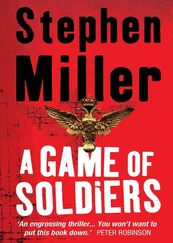To a man and a woman everyone on board hated patrolling the MBL. Basically they were there to show the flag. Most of the time the American side of the line was empty of vessels, all the fishing going on on the other side, in Russian territorial waters, which meant no boarding opportunities except for the occasional marine research vessel.
And it was fresh in everyone’s memory that even when a foreign flag-say a Russian fishing vessel-did cross the MBL into U.S. territory, and even when a Coast Guard cutter-oh, say the Sojourner Truth - caught them half a mile the wrong side of the MBL with their nets in U.S. waters and those nets full of U.S. fish, when said fishing vessel hightailed itself back across the line into Russian territory the cutter was held on the U.S. side, fuming, waiting for District to give them permission to cross the line in hot pursuit.
Said permission, if and when it came, was always too late. Such had been the case the previous August, when District made them wait for the Russian Federal Border Service to show up and escort them across, thirty-six hours later. By then the illegal catch had been long since processed into unidentifiable filets packed deep in an endless line of refrigerated freight containers, the location data on the GPS altered or erased, and the taste of hot pursuit was cold ashes in Coastie mouths.
No, patrolling the Maritime Boundary Line was not an ingredient in any recipe for improving shipboard morale. Sara encouraged the training teams to pile on the fire and damage control drills and helo launches in the hope that it would keep the crew too tired to sulk. She and the senior chief had also organized a Trivial Pursuit championship for this leg of the trip, and the officers would be making pizza that Saturday in the galley, an event the crew always enjoyed, but they all knew it would take awhile before the goodwill kicked in.
She wondered how the miscreants were being treated by their fellow crew members below, but not for long and not with very much sympathy. She sat at her desk, brooding over the inevitable stack of reports, crew assignments, supply orders, and District communiques.
She worked where she slept, in the forwardmost stateroom in officer country, a step and a stairway from another set of stairs leading to the comm deck and the captain’s cabin, which was located directly beneath the bridge. XOs, mercifully, slept alone. She used the upper bunk in her room as a rotating library, but every privilege comes with a price. A stateroom to herself meant that under way there was no getting away from the job. There were two telephones in her stateroom, one of which was Velcroed to the head of her bunk.
As it should be, she told herself. Suck it up, Lange, and stop feeling sorry for yourself.
There was a knock at the door and she looked up. “Sparks? What’s up?”
Sparks was the petty officer on duty in communications. He handed her an e-mail and made best speed in the other direction. She read it. “Sparks! Get back here!”
He returned, reluctantly. She read it again, letting him wait. She even read it a third time, hoping against hope that the letters would form new words. They didn’t. “I am ordering you to tell me that this is a joke.”
He looked as apologetic as his naturally mischievous face was capable of. “It’s not a joke, XO. I confirmed, and you know how they are, they’ve already held a press conference from the bridge of their ship. I e-mailed my wife and had her check CNN. It’s already aired. They’re en route, all right. They may even beat us back to the line.”
“You’re fired,” Sara said.
“Yes, ma’am,” Sparks said, and added hopefully, “Maybe the Russians will sink ‘em.”
“I wish. Thanks, Sparks.”
Correctly reading this statement as his dismissal, he returned to his duty station. Sara relieved her feelings with an uncharacteristic burst of profanity that earned an admiring glance from a passing seaman, and called the captain. “Captain, we’ve just received a heads-up from District. The Greenpeace vessel Sunrise Warrior is en route to the Maritime Boundary Line.”
There followed a long silence. “What is their purpose on the MBL?” the captain said.
“According to Sparks, whose wife watched the press conference on CNN, they are protesting the overfishing of the North Pacific Ocean, which they say is causing the precipitous drop in the Steller’s sea lion population in the Bering Sea, the sea otter population in the Aleutian Islands, and the salmon runs in Bristol Bay.”
There was another long silence while they both thought about the last time they’d had dealings with the Sunrise Warrior. Six months before, Greenpeace had been protesting the taking of bowhead whales in the Arctic Ocean by the Inupiat people who lived there. Television footage had been involved, featuring bloodied whale carcasses being winched to shore and one memorable scene when one of the catch was revealed to be female and pregnant. Sara wasn’t sure the sight of the dead baby whale rolling out of its dead mother’s abdomen had faded from the public consciousness six months later. She knew for a fact that the footage of the Sojourner Truth getting in front of the Sunrise Warrior so the Sunrise Warrior couldn’t get in between the whales and the exploding harpoon heads had not. They were still getting indignant letters from whale lovers all over the world.
At last the captain said, “Thanks, XO.”
He was right. There wasn’t much else to be said. At least this time nothing as beloved-or as photogenic-as whales was involved. She hoped. “You’re welcome, captain.”
She hung up and sat staring at the screen of her computer, trying to summon up enough energy to move.
Truth was, she was tired. This was the Sojourner Truth’s second patrol in four months, the first one lasting fifty days and this one scheduled for fifty-one, with barely enough time in port between patrols for a crewman to father a child and then out to sea again. They were short two cutters on the Bering Sea, and the remaining fleet had to pick up the slack.
But she knew that it was as much loneliness and depression as it was fatigue. Her mind started backsliding toward that hotel room in Anchorage three months before. Just the memory made her breath come faster.
There wasn’t anything she didn’t love about sleeping with Hugh Rincon. They’d barely waited for the elevator doors to close before they were on each other, and she didn’t know now if anyone had been waiting to get on when the doors opened again on his floor or if there had been maids or other hotel staff who had watched them stagger from wall to wall down the hall, see Sara climbing up Hugh’s body and wrapping her legs around his waist. His tie was twisted around to the side and his shirt was missing two buttons by the time she got her key out, and by then he had his hand up her skirt and she had a very difficult time focusing on the lock.
And then they were inside the room and he had shoved her up against the door and gone down on his knees and his mouth was there and, oh, she couldn’t get her legs open far enough, couldn’t press his face to her hard enough, couldn’t scream loud enough when she came. He got back to his feet and tossed her up into his arms for the three steps to the bed, threw her down, and fell on her before she had a chance to protest. Not that she tried. He didn’t bother undressing, just moved his clothes enough out of the way before he was on her and in her, and that was when he stopped, bracing himself on his arms, looking down into her face with fierce eyes. “Sara,” he said, his voice a husk of sound. “Sara.”
“Move,” she said, arching up, clawing frantically at his back, and he laughed, deep and low and triumphant.
Читать дальше












